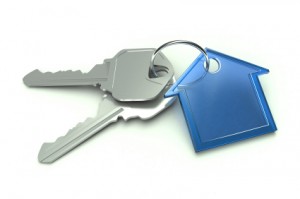PayPal, its an internet giant – you can’t really argue with that. 110 million active users worldwide and counting.
PayPal claims that 59% of purchases are completed using its service, however on average in the US, 88% of users abandon their virtual cart before the checkout.
The debate is still open as to whether people user PayPal because it offers the best service, or because it has a market monopoly – so like with Windows and Facebook, it is hard for people to choose another company, as everyone seems to be using it.
One cannot argue that PayPal offers a useful service. Users can exchange funds, send gifts and purchase goods from an account which gives additional security and guarantees, and doesn’t hold the key to an individuals personal life savings – as a bank account does. PayPal will also convert [many] foreign currencies into your local one, taking a small commission.
PayPal is easy to use, just get someone’s email address, and you can send money to them, or request funds from them. PayPal is also integrated with eBay (well, eBay owns PayPal) and many other sites, making buying online very easy. That said, Amazon still refuse to support it – maybe because eBay is one of its major competitors? Who knows.
Charges
One of the [major] downsides of PayPal are the charges. If one individual transfers money to another individual via a bank transfer, then there are usually no charges. PayPal however does charge.
 If you use sterling, 3.4% of your transaction and an additional 20 pence will go to the folks at PayPal. So if you get a payment of £150, after fees you will have £144.70; so you lose £5.30. If you trade in US dollars, then the fee is 2.9% and $0.30 – slightly more reasonable. All the Scandinavian countries are charged 3.9% in addition to a fixed fee, as is Japan.
If you use sterling, 3.4% of your transaction and an additional 20 pence will go to the folks at PayPal. So if you get a payment of £150, after fees you will have £144.70; so you lose £5.30. If you trade in US dollars, then the fee is 2.9% and $0.30 – slightly more reasonable. All the Scandinavian countries are charged 3.9% in addition to a fixed fee, as is Japan.
If every month you have a large inflow of money into your PayPal account, your fees do get reduced, and in the UK your fees can drop as low as 1.4% if you receive over £55,000 a month.
You could argue that these charges are fair, as PayPal is a business and needs to make a profit. However you could also argue that users are a little overcharged for the service PayPal provide.
PayPal Here
You can do almost anything on your mobile these days. In terms of business, there are mobile payroll apps, contact managers, and even mobile trading apps, so is it any surprise that PayPal has a mobile application? Probably not. It has several in fact, one for Android, one for iPhone and another for Windows mobiles. As the firm boasts:
“You don’t have to be at a computer to use PayPal – you can shop or send money securely wherever you are.”
But the PayPal app is no longer the only connection between your smartphone and the internet giant.
Last month, PayPal announced that it had developed and was launching a chip and PIN device, called PayPal Here, which (as they put it) provides “a simple, secure way, to accept payments on your mobile device“.
The PayPal Here device wirelessly connects to the sellers smartphone, which hosts a PayPal app, and gives the user the security of a wired chip and PIN, via the phone. So, the seller inputs the amount they want to charge, links their phone to the device, gives it to the customer, who inserts their card, enters their PIN, and the sale is complete.
This could potentially allow anyone to take a payment from virtually everywhere. Industries which were previously solely reliant on cash like taxi services and market stalls, can now potentially take payments by card.
Debit Card
Late last year, PayPal launched its own debit card, so users can directly access their funds via a card. Users can also earn 1% cash back when enrolled in PayPal’s Preferred Rewards Program.
These recent changes are leading me to wonder whether PayPal might choose to move into the banking industry soon? A debit card and an easy access ‘current’ account are both features of most high street banks.
Do you think PayPal will (in the near future) be launching a savings account? Could it start to offer users an overdraft facility, or even short-term loans? I believe it is a possibility – and not an unlikely one either.


